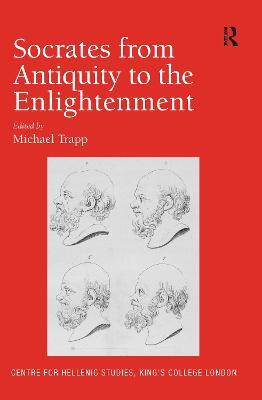Socrates from Antiquity to the Enlightenment(English, Electronic book text, unknown)
Quick Overview
Product Price Comparison
Socrates, son of Sophroniscus, of Alopece is arguably the most richly and diversely commemorated - and appropriated - of all ancient thinkers. Already in Antiquity, vigorous controversy over his significance and value ensured a wide range of conflicting representations. He then became available to the medieval, renaissance and modern worlds in a provocative variety of roles: as paradigmatic philosopher and representative (for good or ill) of ancient philosophical culture in general; as practitioner of a distinctive philosophical method, and a distinctive philosophical lifestyle; as the ostensible originator of startling doctrines about politics and sex; as martyr (the victim of the most extreme of all miscarriages of justice); as possessor of an extraordinary, and extraordinarily significant physical appearance; and as the archetype of the hen-pecked intellectual. To this day, he continues to be the most readily recognized of ancient philosophers, as much in popular as in academic culture. This volume, along with its companion, Socrates in the Nineteenth and Twentieth Centuries, aims to do full justice to the source material (philosophical, literary, artistic, political), and to the range of interpretative issues it raises. It opens with an Introduction surveying ancient accounts of Socrates, and discussing the origins and current state of the 'Socratic question'. This is followed by three sections, covering the Socrates of Antiquity, with perspectives forward to later developments (especially in drama and the visual arts); Socrates from Late Antiquity to medieval times; and Socrates in the Renaissance and Enlightenment. Among topics singled out for special attention are medieval Arabic and Jewish interest in Socrates, and his role in the European Enlightenment as an emblem of moral courage and as the clinching proof of the follies of democracy.


